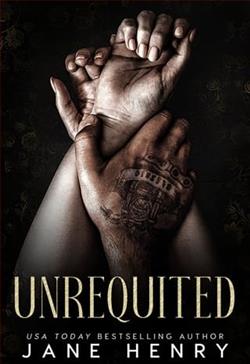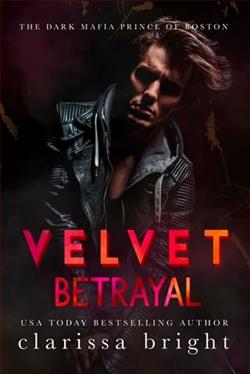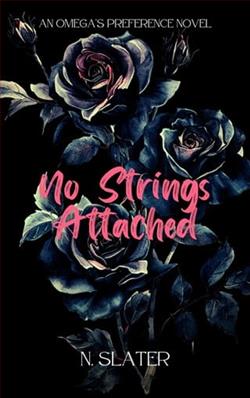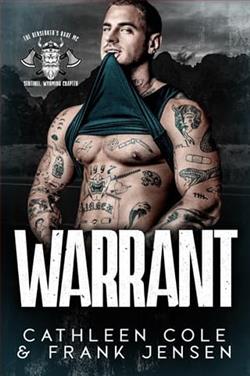Page 10 of The Lovers
“Nothing?” Quinn whispered.
“There was a note tucked into the blanket. I have it if you’d like to see it. I saved it for you. I knew you’d want answers one day, but I’m sorry to say that’s all we have.”
“Yes, I’d like to see it,” Quinn replied. She imagined she’d be able to see something in the note everyone else failed to notice, but it was just a scrap of paper, torn out of some notebook. Quinn stared at the writing on the note. It was in pencil and said very little:
Quinn
Born September 27, 1983
“Is that it?” Quinn asked, disappointed.
“Yes, that’s it. Social Services had no idea whether Quinn was your last name or first name, but they passed the note on to us, and we decided it must have been your given name, so we kept it.”
Quinn. Someone had bothered to name her and provided her date of birth. At least she knew that much, but it was very little to go on. It was a dead end, and she had to learn to live with this new reality.
Over the years, Quinn tried to put a different spin on the story of her birth, but the uncertainty of what really happened tore at her soul, refusing to let her find peace. She tried to pretend that her mother was a young girl, who was frightened and alone and couldn’t afford to keep her, so she left her in a church where she knew the baby would be found by someone trustworthy and passed on to the authorities. But the fantasy wasn’t enough. She longed to know the truth, no matter how painful it might be, especially once she discovered her ability to see into the past.
Quinn supposed that she had it all along, she just never realized it, not having known anyone who died before. She’d been almost eleven when Grandma Allenby died. Ruth Allenby had been Quinn’s favorite grandparent, the one she spent the most time with given that she lived only a few streets over. Her mother’s parents were good, loving people, but they lacked the imagination and sense of fun Grandma Ruth seemed to possess. At nearly ninety, she had been sprightly and young at heart, not like any other old person Quinn knew. Quinn loved having sleepovers at Grandma Ruth’s. They spent hours listening to wartime jazz, looking at old photo albums, and telling ghost stories by the light of the old spirit lamp. Quinn’s favorite ghost story was about Grandpa Joe, who died long before she was born. Grandma Ruth said that Grandpa’s spirit lived in the house and would look after her until she went to join him in heaven. She looked forward to seeing him again after all this time.
“Do you think he’ll look old when you see him, Grandma?” Quinn asked, wondering if Grandpa Joe would appear as he did in his fifties when he died or if he would look like Grandma Ruth, wrinkled and frail.
“I bet he’ll look just as handsome as he did when I first met him in 1942. He had been a surgeon, and I was one of the nurses at the Alexandra Hospital in Singapore,” her grandmother said, her eyes clouded with memories. She didn’t like to talk about the war, or the atrocities she had witnessed, but she liked reminiscing about her Joe. She always said good night to his picture, which stood by her bed, the sepia photograph framed by a heavy silver frame. Grandpa Joe was in uniform, his lean face serious as he stared into the camera, but Quinn could still see the laugh lines around his mouth and the twinkle in his eye that Ruth so often alluded to. She said it was that twinkle that led to the existence of her father, Roger. Quinn hadn’t been at all sure how a twinkle could produce a little boy, but she took her grandmother’s word for it. Hergrandfather must have retained the twinkle since there had been four other children after Roger.
And now Grandma Ruth was gone; her little house was the same but utterly different without her in it. Quinn hoped that her grandparents were finally together, as Grandma Ruth always said they would be.
“Quinn, darling,” her mother said, interrupting Quinn’s reverie as she stared at the photograph of her grandfather after the funeral. “Grandma Ruth wanted you to have this.”
Her mother held Quinn’s hand and lowered a gold chain with a heart-shaped locket into her palm. Grandma Ruth always wore that locket. Joe had given it to her on her twenty-second birthday in 1943. It contained a tiny picture of the two of them, dressed in civilian clothes. They looked so young and earnest then. Quinn squeezed her fingers shut around the locket. She would treasure it always.
Quinn suddenly had an image of her grandmother, as she appeared in the locket, running down an unfamiliar-looking street, the heels of her shoes clicking on the pavement. She seemed anxious and kept turning to look behind her, as if someone were chasing her. Ruth breathed a sigh of relief when she spotted Joe, who jumped from a military jeep and enfolded her briefly in his arms before helping her into the car and speeding away. Quinn heard the whistle of a bomb and then the deafening roar of an explosion as a silver-bellied plane emptied its cargo onto the burning city. Quinn was so frightened, she dropped the locket, and the image of her grandparents vanished like smoke, leaving her confused and disoriented.
Quinn sat down on the bed, her brow furrowed with concentration. She couldn’t remember Grandma Ruth telling her that story. She never spoke of bombs or terrifying raids that turned buildings to rubble and painted the sky black with smoke fromcountless fires burning all over the city. Instead, she told Quinn about dancing with Joe at a jazz club and even showed her some of the dance moves of the time, making Quinn giggle as they did the twist in the kitchen. Ruth reminisced about strolling beneath the palm trees on a moonlit night and how Joe proposed to her over a patient lying open on the operating table because he simply couldn’t concentrate on performing the surgery until he had her answer. But perhaps Quinn had forgotten and chose to remember only the stories she enjoyed.
Over the next year, Quinn saw countless images of Grandma Ruth, not only during the war but of Ruth as a child, as wife and mother, and later, as a widow. Quinn no longer believed that she was remembering the stories her grandmother told her. No, the stories came from the locket, and she saw them only when she held the locket in her hands and the gold grew warm from the heat of her skin. Quinn didn’t know how to navigate what she saw, and at times she was frightened by the depth of her grandmother’s sorrow or fear, but there were also visions of love and joy, and Quinn cherished those, knowing that her grandmother would have wanted to share those moments with her.
Quinn wore the locket all the time; she wore it still, as a tribute to her beloved Grandma Ruth, the person who unwittingly unlocked her gift. Now that she was a grown woman, Quinn understood how her ability to see into the past worked and could even manage to choose what she saw by mentally focusing on a specific year, but it was a secret she kept to herself. She’d tried telling her parents after experiencing those first unexplained visions, but they didn’t believe her. Her father rationalized it as a manifestation of grief and a desire to retain a link to Grandma Ruth, and her mother said that the images were simply a figment of her imagination, an explanation that Quinn readily accepted, despite knowing beyond a shadow of a doubt that what she was experiencing was quite real.
As Quinn got older, she realized that the strange ability she’d been born with had to have come from somewhere or someone. She must have inherited it from one of her parents, but of course, she had no one to ask. Quinn made up stories in her head, imagining that this link to the spirit world was passed from generation to generation down her mother’s line, the ability bestowed only on the first daughter of the first daughter and so on. It was a romantic tale that helped her make peace with the strange and often frightening images she saw. Quinn learned not to pick up old objects and made sure that she wore gloves when there was no choice. Her gift came in handy in her profession, but she didn’t welcome it into her personal life, wary of where other people’s recollections might lead her.
SEVEN
DECEMBER 1664
London, England
An icy wind blew off the river and nipped at Elise’s cheeks as the ferryboat glided across the Thames, its lantern swinging from side to side. It was still lit despite the hour due to the thick fog swirling all around them and making Elise feel as if they were alone on the river. The fog seemed to mute all sound, the only thing still audible were the twin splashes as the oars dipped into the water. The ferryman looked glum as he navigated the boat toward the Strand, his eyes fixed on the smudge of bank looming in the distance. Elise huddled into her cloak, frozen to the bone despite the warm lining of fox fur. Damp seeped into her bones and made her shiver. Or was it apprehension?
Hugh de Lesseps sat quite still, his face turned toward the shore, his hands resting on his thighs. He hadn’t uttered a word since leaving home an hour ago, abandoning Elise to her own thoughts, which were less than tranquil. She’d eaten a light breakfast of bread and broth, but now the food soured her stomach and the rocking of the boat made her feel as if she might be sick. She breathed deeply, hoping the frigid air would prevent her from giving in to the nausea. Hugh sprang to his feet as soon as the boat docked, paid the ferryman, and helped Elise out of the boat. “Come,” was all he said as they set off toward Asher Hall on foot. Elise was grateful to feel solid ground beneath her feet. She was still nervous, but at least her stomach seemed to be settling.
Elise followed her father silently down the street, her thoughts on the upcoming interview with Lord Asher. She found it odd that she’d been summoned to call on her betrothed instead of him coming to her, but then again, nothing about this situation was what she would consider to be normal or proper. The wedding was only a week away, but she’d had no contact with Lord Asher, nor had she been informed or consulted on anything. The summons came the previous evening, inviting Elise and her father to call on Lord Asher at his home at midday. They hadn’t even been invited to dine, just to attend, which meant that they would be expected to leave as soon as their business was concluded, whatever that business was.
Elise walked with her head down, paying little heed to the grand houses or traffic in the street. Her father pulled her roughly out of the way as a fine carriage rattled down the street, the coachman huddled into his cloak and the horses blowing steam as they raced past. It was too early for a gentleman to be going out, so the occupant was likely just returning from a night’s entertainment, possibly at the palace. Had Lord Asher spent the night at home, or had he gone out for the evening to enjoy the amusements the court had to offer? Elise wondered. Would he take her with him once they were wed?
Elise nearly bumped into her father when Hugh stopped in front of Asher Hall. The imposing facade was shrouded in soupy fog, and most of the shutters were closed, as if the occupants were still asleep. Elise was surprised to note that the house was built of gray stone, boasting large windows and numerous chimney pots, at least half of which were belching smoke. Fires had been lit in several rooms, by the look of things, so at least the place must be warm.
The building itself was surprisingly modern and nothing like the half-timbered Tudor houses that lined the narrow streets, their overhanging second stories blocking nearly all the light andleaving the streets in shadow even on the brightest of days. Imposing wrought iron gates set into a stone wall bore an ornateAon either side, a small sign of vanity on the part of the owner. Lord Asher spared no expense in building his London residence, and it showed.
“Are we early, Father?” Elise asked as she surveyed her future home.















